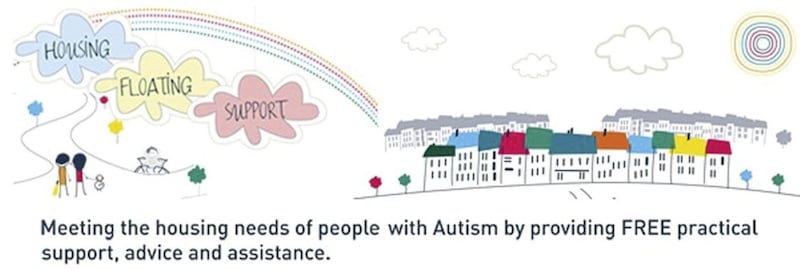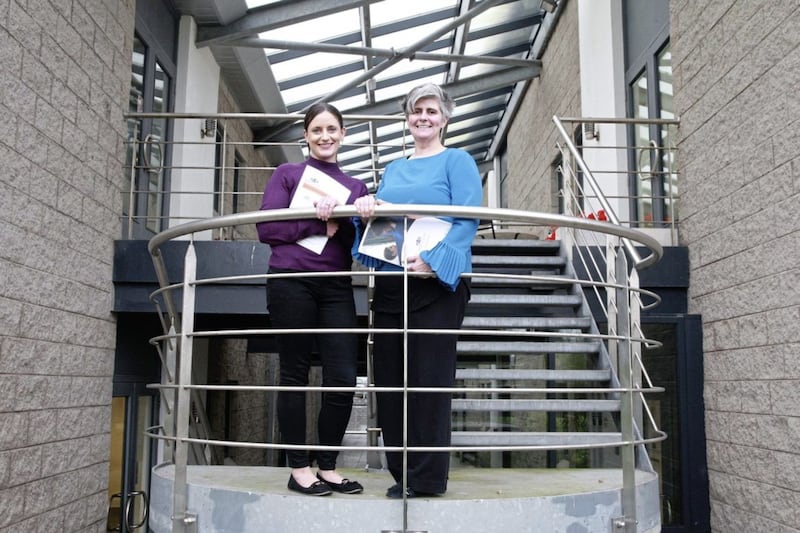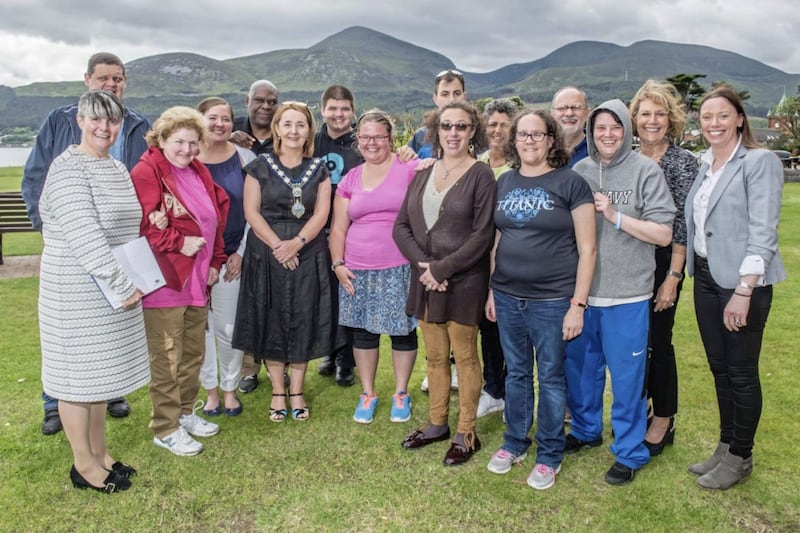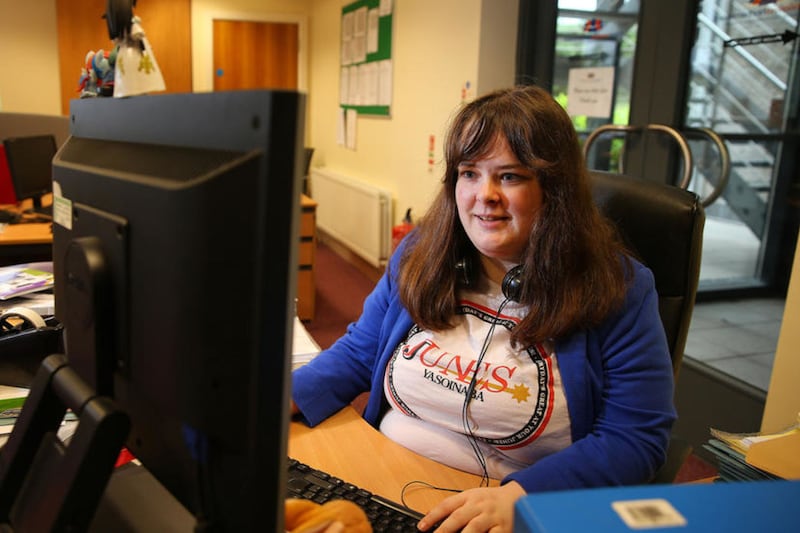EVERYDAY sights, lights and sounds are normal stimuli that, in a shop, school or business environment, rarely register with most of us.
But the dazzle of fluorescent lighting, a sudden blast of ear-popping music or even an encounter with an unsmiling face behind a counter can have a devastating impact on people on the autistic spectrum, according to the director of Autism Initiatives in Northern Ireland, Grainne Close.
The charity, which supports more than 260 people in the north and was the driving force behind Newcastle's recently declared status as the north's first 'autism-friendly' town, is now calling on more citizens to get with the 'friendly' programme.
"Newcastle has always been very autism-friendly, but now it is official and we hope to see other towns in Northern Ireland follow suit," says Grainne, who has helped position the charity as the regional leader for direct service provision.
"It is often simple, small steps of change which can make the world of difference for someone with autism – whether that is turning the music down a notch or including a quiet corner on a shop floor.
"In a coffee shop, for instance, we know that the equipment used to remove the coffee, when baristas sort of 'bang' it out, can be a very grating noise for someone with autism. Fluorescent lighting isn't great either – subdued lighting is much more soothing.
"Also, in public restrooms, things like a noisy toilet cistern can be upsetting, while the colour and pattern of wall or floor tiles and the temperature of the water coming out of the taps can also have an effect. Such things barely register with people because they are so insignificant, but that means they are also easy to change.
"Clear sight lines and quiet areas are the two key areas which we are asking people to think about and, I am delighted to say, we have had a tremendously positive response so far."

The initiative, which has been supported by Newry, Mourne and Down District Council through the Enterprise, Regeneration and Tourism Department, aims to encourage the business community to "think differently" about autism and it has already prompted expressions of interest from other council areas.
"We have been inundated by calls from other council areas, so it has been so encouraging," Grainne adds. "People have been very understanding and realise that if an area is friendly for people with autism, then it is friendly for everyone."
Importantly, the fledgling project has also gained approval from a visiting group of exchange visitors from Boston with a special interest in the condition which affects the social and communication centre of the brain and affects more than 30,000 people in Northern Ireland.
Autism 'ambassadors' from Boston-based 'Toward Independent Living and Learning' (TILL), attended the launch event to sample local produce, explore the town and take part in mystery shopping – while secretly gauging the 'autism-friendliness' score of Newcastle services.
"It has been brilliant to have the initiative endorsed by the Boston ambassadors who found Newcastle to be a very safe and welcoming place to visit," Grainne adds. "No doubt they will go back to the US and tell others to visit, so we are also doing our bit for local tourism.
"These are exciting times for Newcastle which has been recognised locally and internationally as a leading autism destination. Now, our long-term plan is to open a specialist autism holiday home in the area and to do this successfully we rely on key partnerships such as the one with Newry, Mourne and Down District Council and the International Ambassador Programme with TILL.
"Partnerships like these ensure that we share knowledge, best practice and expertise to better meet the needs of those living with autism both locally and internationally."
Employing 90 people in Newcastle, a hub for Autism Initiatives, which helps support adults with autism in the town, the charity provides supported living day care for 50 people in the area. It also runs supported living projects in Belfast, Lisburn and Bangor.
There are also plans to roll out a Saturday morning programme, designed to help autistic children learn how to ride a bicycle.
"We have had a swimming programme in Belfast for a while and we have been running the 'Balance Ability' bicycle classes for three or four years across Northern Ireland," Grainne says. "It is another example of how children with autism need a little extra help with skills that other young people take for granted.
"In the Balance Ability classes, we help with hand-eye co-ordination and use techniques to help quell fear and anxiety. It is a structured approach to learning to ride a bicycle, but the emphasis is still on having fun – and that is an important thread running through to all our programmes.
"We have been so encouraged by the public response that we want to continue the goodwill and do even more to help everyone with autism, whatever their age. At the moment, we are looking at providing sensory gardens in Newcastle and adapting the central promenade some way.
"There is always more work to do to develop social systems which meet the needs and abilities of everyone in society."
:: For more information on the work of Autism Initiatives and volunteering opportunities, visit www.autisminitiatives.org





